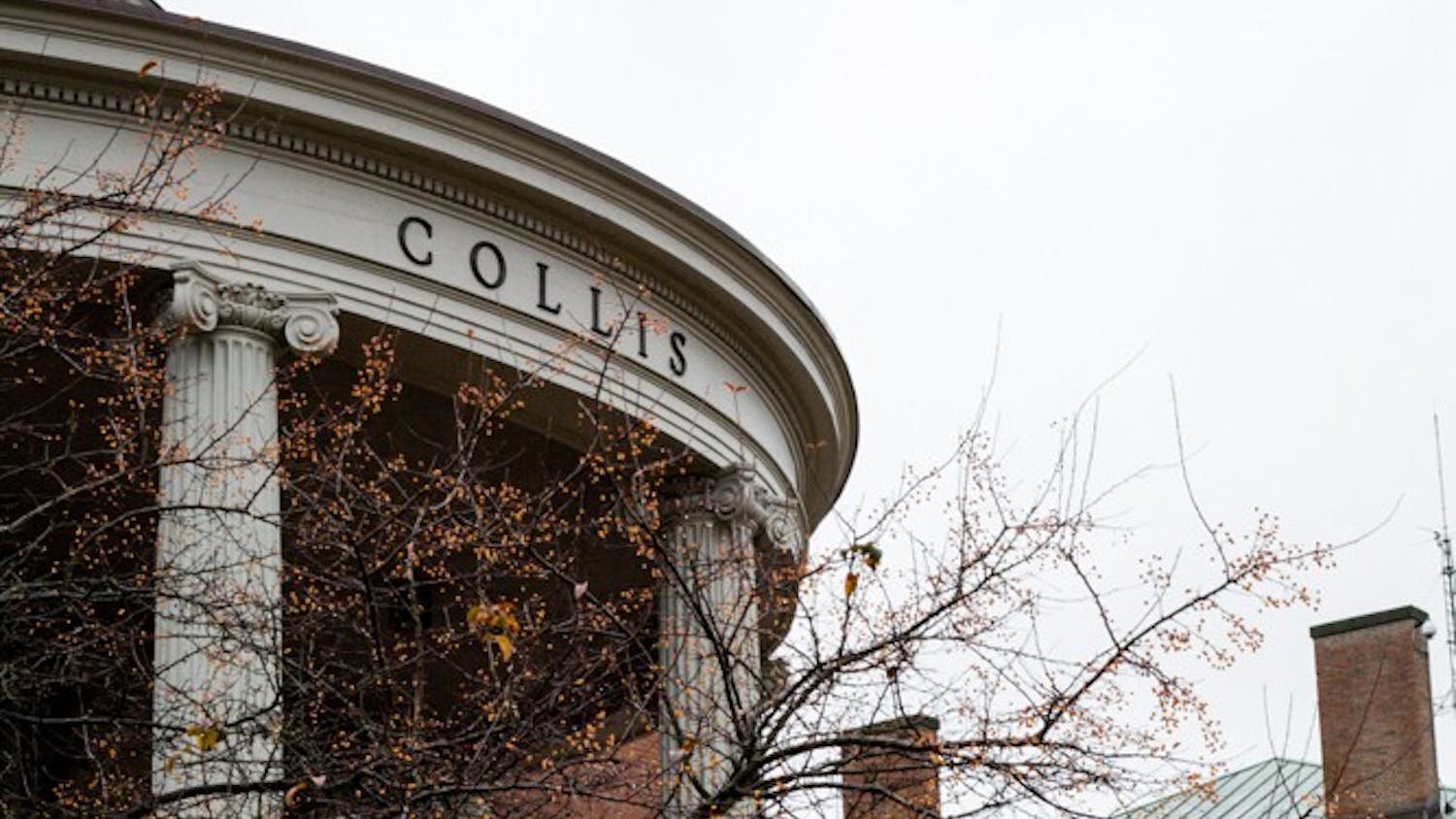This year’s elections for Student Assembly and Class Councils were marked by several incidents of students using anonymous posts to criticize and attack certain candidates, calling into question the ethics of public callouts in student elections and of using anonymity for this purpose.
Posts publicly attacking or condemning student candidates appeared during the campaign period on both the anonymous discussion app Librex and an anonymous Instagram account. One Librex post referred to a candidate — presumably María Teresa Hidalgo ’22, who ran for SA vice president this year — as “speaking from the slums of South America.” Meanwhile, an anonymous Instagram account posted screenshots of a Snapchat conversation in which Darren Nelson ’23, who ran for the Class of 2023 Class Council, made remarks that Librex commenters criticized as “anti-LGBT and anti-Muslim.”
Librex’s content policy prohibits the targeting of individuals on the app. Despite this policy, many users circumvent the rule by referring to individuals in more discreet ways, including through acronyms, first names or other identifying information.
Several posts were made about Hidalgo on Librex, though they did not mention her name explicitly. She said one post compared her and her running mate, Olivia Audsley ’21, to Benito Mussolini and Adolf Hitler.
Hidalgo said that to her, these comments were a message to other people interested in running for student office, saying “don’t run” because they will face similar criticism on Librex and within the Dartmouth community. She said that users were not targeting specific policies, but rather her background.
The Elections Planning and Advisory Committee sent out an email on May 6 condemning such posts, saying that “in the wake of a transition to exclusively digital campaigning, we have noted an uptick in the number of inappropriate statements directed at candidates for student office.”
After the email was sent, Hidalgo continued to receive threats, she said. One post threatened to call Immigrations and Customs Enforcement on Hidalgo. Despite her own American citizenship, Hidalgo said that this is still a “threat” against undocumented immigrants on campus.
Librex founder and Yale University student Ryan Schiller said he believes that open discourse makes a community “safer,” as it allows for the exploration and resolution of contentious issues.
“We believe that modern social media platforms attempting to play the ‘arbiter of truth’ and limiting access to information is a major problem in our society, influencing our elections and damaging our democratic process,” Schiller said, adding that the Librex team supports free speech — which he noted legally includes hate speech — “unapologetically.”
Hidalgo said that she would characterize some discussions on the app as “hate speech.”
She said that while anonymous discussion apps allow people to talk about sensitive issues such as mental health and sexual assault, they can also embolden extreme voices that propagate hate. She said that the Dartmouth Librex moderators need to take more action to prevent this.
The Librex rule prohibiting users from targeting individuals on the app excludes “public figures.” On May 3, however, the Librex leadership team announced that candidates running for SA did not constitute public figures and therefore could not be specifically referred to by name on the app.
Regarding her status as a public figure, Hidalgo added that she believed that while running for office, she was a public figure on campus, free to be discussed. However, she said that posts regarding her background that are unrelated to her campaign should be deleted.
Schiller stated that “[Librex is] not making any claims about what constitutes a public figure in a broader sense” and that this decision was made to create a “conversation focused on the candidates’ policies, not their personal lives.”
He said that the Librex team is currently working toward using artificial intelligence technology to flag posts for moderator review before they are posted. Currently, if a student moderator sees posts “about specific students” on the app, the comment is removed and the user is banned, according to an email statement from Schiller. While Schiller noted that moderators make an effort to remove posts that violate the rules, many have stayed up on the platform for days before removal.
In Nelson’s case, posts calling him out for homophobia circulated outside of Librex as well.
On the morning of this year’s SA and Class Council elections, an anonymous Instagram account posted screenshots of a Snapchat group chat in which Nelson sent a video of a preacher whom Nelson said “[brought] the gospel to areas that are full of sin,” adding that “it’s important that some people of Christ bring the gospel to areas like the LGBT community.” He encouraged the other members of the group to watch the video, as “the preacher explains how God will accept you as gay, etc [sic] but he doesn’t expect you to stay that way / He will transform you / With the Holy Spirit."
According to Nelson, the screenshots depicted a conversation in a Christian students’ Snapchat group chat “almost a year [ago], before getting to Dartmouth.” Nelson said that he sent a video to the group to prompt a discussion of how Christians can face persecution for their beliefs.
“It’s a level of confidentiality that you have to have in a group for someone to be able to feel comfortable with being vulnerable and being able to share their true thoughts and having honest discourse,” he said. “For that to happen, you can’t have situations like these where people just oust your whole conversation with no context.”
EPAC did not send out an email to campus about Nelson’s case. However, Hidalgo said that the difference between her case and Nelson’s is that comments about her opposed marginalized communities. She added that she does not consider Christians a marginalized community.
Nelson said that he feels like his situation resembles Hidalgo’s in that both cases referred to personal beliefs and identities being referenced and attacked.
“The thing is, I think since it’s not as high ticket [of an] office, [EPAC] feels like they’re not obligated to respond. I did think that was very interesting and wasn’t fair that they didn’t respond,” Nelson said, adding that EPAC did not reach out to him. “I don’t think they want to be responding to and getting involved in these situations.”
After the election, Nelson asked EPAC to investigate the incident, accusing Jamie Tatum ’23, a write-in candidate for Class Council, of creating the Instagram account on the morning of election day. Tatum confirmed that she was contacted by EPAC about the investigation but declined to comment further.
EPAC chair Tahlia Mullen ’22 said that the committee received Nelson’s request for an investigation, but noted that EPAC is out of session now that the election is over. She added that after being elected, a student is “outside of EPAC jurisdiction.” She declined to comment further.
Andrew Bricklin ’23 said that he sent a link to the Instagram account in a Class of 2023 group chat to “put it out there” that the screenshots existed. He said that he was hoping to stop other students from “spreading it nefariously behind [Nelson’s] back” and get some clarification on Nelson’s side of the story.
“I think that if you’re running for a student position, like anyone for election and any type of office, past beliefs or ideas [have] a risk of coming to light,” he said. “It’s fair to question if you have these beliefs, which you have the right to have … [but] if you go into personal parts of this that have really nothing to do with this person and start attacking someone because of background or something like that, then it goes too far.”
However, Nelson added that he found conversations about the issue unproductive, as he said that people are often “trying to win” an argument while not making any efforts to “be collaborative or find any common ground.” He called these conversations “pointless call-outs” that were like “beating a dead horse.”
“I was shocked at the response from our community,” he said. “It reminded me that a lot of people [support] free speech unless your beliefs don’t go along with theirs or along with the majority beliefs. They’re all for free speech until you don’t agree with them.”
Nelson said that the occurrence of incidents like his on Librex point to a “deeper,” “underlying” issue in the Dartmouth community where people feel comfortable saying “whatever they want.”
Jonathan Briffault ’21, the incoming SA vice president, said that he prefers discussion with names attached because it creates a sense of accountability, but he also said that anonymity allows people to reach out about concerns regarding more personal issues.
Incoming SA president Cait McGovern ’21, noted that many posts violating Librex policies were allowed to remain up for “quite a bit of time.” She added that a designated EPAC moderator could be a solution for getting posts taken down quickly.
McGovern said that she hopes EPAC will add campaign guidelines regarding Librex in future elections.
Briffault added that as new forms of media are created, it's important that EPAC has the ability to respond but that issues like misinformation remain difficult to deal with. He added that “misinformation has become a growing part of our lives,” but no easy solutions exist.
When asked about the potential for individuals to share false information on Librex, Schiller stated that people are free to share information on the app as they please, and “Dartmouth students have the power to discern fact from fiction for themselves.”
McGovern added that while Dartmouth does not have control over Librex as a platform, the College can take action on student behavior on the app. Although people want to know about who they are voting for, she said that there are “inappropriate ways” to spread that information that she said do not align with community values.
Acknowledging the potential for administrative overreach in deciding what constitutes free speech and what should be censored, Briffault said that “there are really thorny questions to ask about who is responsible for maintaining the guidelines of the community.”
Hidalgo and McGovern are former members of The Dartmouth staff.

Lauren ('23) is news executive editor for The Dartmouth. She is from Bethesda, Maryland, and plans to major in government and minor in public policy.




